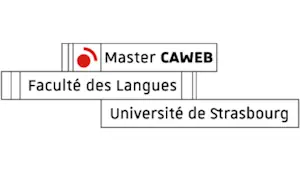Translating Humor: Is It a Matter of Localization?

Making jokes and satire have been around since a long time ago. And this, in itself, is a wonderful thing that human beings, in all societies, have always tended to find something to tell each other with the purpose of joy and laughter. Jokes sometimes have universal contents, like sex jokes, for example. Because such jokes are about a common human experience, they are often understood by everyone, regardless of which society and culture we grew up in. But most of the time, the issue of humor is challenged by intercultural differences that, if ignored, can lead to misunderstandings, hurting others’ feelings, or even greater problems. Take English, for example, which is spoken in both the United States and the United Kingdom. Although both English and Americans speak English, can we say that they both have the same cultural, social, and historical experiences? In other words, do people in the UK laugh at the same things that Americans do? This is exactly the reason why people in one part of the world make jokes that people in another part of the globe will find tasteless or even offensive. According to the famous French humorist, Pierre Desproges,
“You can laugh at everything, but not with everyone!”

The cultural context of each society breeds its own jokes!
As a translator, you may be asked to translate a joke from one language into another. Well, it is not as simple as it sounds. Let’s clarify by making a comparison: Jokes are very similar to proverbs. We all know that proverbs are not created by chance. In other words, they are usually based on a story that has historical and cultural origins. Indeed, there is a deep and undeniable connection between the proverbs used in a place and the people who live there. This connection makes the audience deeply understand the ironic and instructive content of the proverb when it is used. Humor works exactly the same way. For example, let’s take a look at two humorous phrases that all French know, use, and laugh at when it comes to English class or anything related to English learning:
“Brian is in the kitchen.”
“My tailor is rich.”
In the 1980s English classes in French schools, there was a rather popular dialogue including the question “Where is Brian?”. Years later, a famous comedian named Gad Elmelah said the sentence “Brian is in the kitchen.” in response to that question, which turned into a part of French culture. Moreover, in the early 20th century, the first sentence written in Assimil’ English textbooks was “My tailor is rich.” Nowadays in France, the comical tone of this sentence can be perceived even by those who have never read Assimil’. Another funny aspect of these two sentences among the French is probably because the words Brian and tailor contain the letter r. This letter is not pronounced the same way in English and French. Therefore, when a French person uses these two sentences in the right place and deliberately emphasizes the letter r with a bad English accent, it adds to the humor and irony of the phrases and makes their French audience chuckle even more.
Localize the joke and make everybody live it!
To translate jokes from one language into another, we have to go beyond literal translation. We need some deeper intercultural knowledge, combined with linguistic abilities, to achieve an intelligent adaptation. Well, I have to say that the only practical solution would be to let localization play its role here. To better understand, let’s enter the world of proverbs again: Take, for example, this famous French saying:
“Il faut hurler avec les loups.”
The literal translation of this phrase into English would be: “People have to howl with the wolves!” which has no deep meaning and confuses English speakers when they hear it. The second way is to explain the proverb in the footnote, which is not very professional. However, by taking the third way, which is translation and localization, we can find the equivalent English proverb:
“People have to run with the pack.”
Which is understandable and said with the same purpose among English speakers. This method can also be used to localize a joke. We can replace a French joke that is supposedly incomprehensible in Spain with a Spanish one that has the same purpose there. The second method can be recreating. Here, we do not completely replace the gag, but only change some elements. For example, if the joke is about a famous place or phenomenon in the country of the source language, we would replace it with a phenomenon or place that is equally important in the country of the target language. Remember that jokes are supposed to be potentially funny, without any further explanations. As the famous author E.B. White once said:
“Explaining a joke is like dissecting a frog. You understand it better, but the frog dies in the process.”
Humor in marketing
Today, the use of humor in the world of marketing and infusing jokes into advertisements is common and has brought significant success to the owners of many brands. However, according to Steve Olenski, a former contributor, using jokes as a tool for marketing would work, if we avoid some key threats, such as tasteless or offensive humor or jokes that lead to misunderstandings. He added that it is also important to be careful about the good timing and the fact that humorous ads can also be humiliating if the brand is undergoing a crisis for instance.
Localization of humor in marketing: Let’s make a brand internationally memorable!

In the early ‘70s, Pepsi introduced itself to the world with the slogan, “Come alive! You’re in the Pepsi Generation!”
This humorous notion was welcomed by western societies. However, when they tried to localize it in China, the mistranslation of the joke ended up in total disaster. The funny slogan was translated into Mandarin and Cantonese as, “Pepsi brings your ancestors back from the dead!” and “Rise from the grave with Pepsi!” in German. Yikes! Some say that it might’ve worked for Halloween! Since international marketing means translating advertisements, localization of humorous ads plays an essential role in a brand’s progress or decline. An advertisement with amusing content can promote the brand in the country of the source language. However, poor translation and a lack of attention to the cultural elements of the target language’s country would cause real negative feedback.





